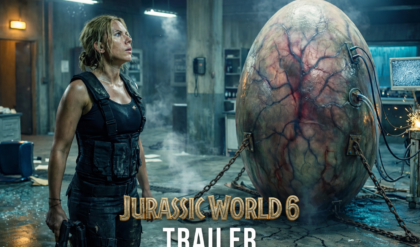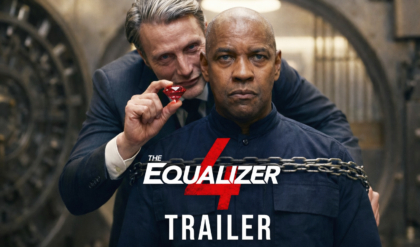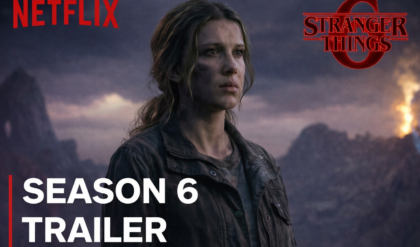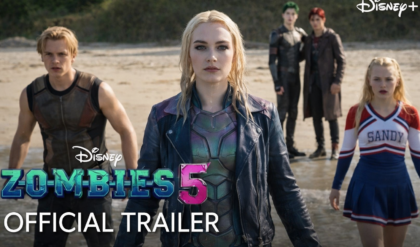Assassin’s Creed Shadows, Ubisoft’s lavish foray into feudal Japan, has been a whirlwind of highs and lows since its March 2025 debut. With a staggering $300 million budget, the game promised a definitive Assassin’s Creed experience, blending stealth, combat, and a vibrant open world. Yet, while its stunning visuals and level-based assassination missions have earned praise, one aspect continues to spark relentless debate: the romance scenes. Among them, a particular encounter has fans reeling, with one viral reaction capturing the mood: “This romance scene makes me wonder if it was written by a child that never had any relationship before.” The scene in question, involving Naoe and a character named Kochiro, has ignited a firestorm of memes, rants, and disbelief across platforms like X and Reddit. Let’s unpack why this moment has struck such a nerve, explore its flaws, and consider what it reveals about Ubisoft’s storytelling ambitions.
The Scene That Broke Fans
Assassin’s Creed Shadows centers on dual protagonists: Naoe, a stealthy shinobi, and Yasuke, a historical Black samurai. Romance options, a carryover from Odyssey and Valhalla, let players pursue relationships with various NPCs, aiming to add emotional depth to the narrative. The scene drawing ire unfolds during a quiet moment in Naoe’s story, set against a picturesque backdrop of cherry blossoms and a glowing sunset. On paper, it’s primed for heartfelt connection—a shinobi opening her guarded heart. In execution, it’s a masterclass in awkwardness that’s left players cringing.
The dialogue is the primary culprit. Naoe, typically stoic and sharp, delivers lines that feel jarringly out of character, like, “Your eyes are like stars, guiding me through the darkness of my soul.” Her partner responds with equal fervor, proclaiming, “Then let my heart be your lantern, forever burning for you.” Fans on X have dubbed it “poetry night gone wrong,” with one viral post joking, “Did a middle schooler sneak into Ubisoft’s writing room?” The exchange drags on, piling cliché upon cliché—references to “eternal flames” and “destiny’s embrace”—until it feels less like a romance and more like a parody of one.
Delivery compounds the issue. The voice acting, while solid elsewhere, stumbles here, with actors sounding unsure, as if grappling with the script’s odd cadence. Animations don’t help: characters stand stiffly, their gestures mismatched to the dialogue’s intensity. At one point, a hand-holding attempt glitches, leaving Naoe’s arm floating awkwardly. A Reddit thread with thousands of upvotes shared a clip of the scene, captioned, “$300 million and they couldn’t afford a second take?” Timing is another misstep—the scene triggers abruptly after a tense mission, clashing with the story’s momentum. “I’m dodging arrows one minute, then reciting love sonnets the next,” one player lamented on Steam.
Fan Backlash: Laughter Meets Frustration
The reaction has been swift and merciless. On X, the scene has spawned a meme frenzy, with fans overlaying the dialogue onto cartoon characters or setting it to dramatic soap opera music. Hashtags like #ACShadowsRomance and #CringeCreed trend sporadically, fueled by clips that rack up millions of views. Streamers lean into the chaos, pausing gameplay to read lines in exaggerated voices, often collapsing into laughter as chat floods with facepalm emojis. A Twitch highlight went viral when a streamer, mid-scene, yelled, “Who greenlit this? I need names!” to raucous applause from viewers.
Beneath the humor lies real disappointment. Fans expected more from Ubisoft, especially given Shadows’ massive budget and the franchise’s narrative legacy. The sentiment that the scene feels “written by a child” reflects a broader critique: the writing lacks emotional authenticity. Players point to games like The Witcher 3 or Baldur’s Gate 3, where romances feel earned through nuanced dialogue and character growth. In contrast, Naoe’s scene feels like a checklist item—insert generic love talk here—lacking the depth to make players care. “I want to root for her, but this is just embarrassing,” a Redditor wrote, echoing a common thread.
Some fans question the inclusion of romance altogether. Assassin’s Creed has traditionally focused on stealth and historical intrigue, not personal relationships. While Odyssey and Valhalla introduced optional romances, they faced similar gripes for feeling tacked-on. Shadows was supposed to refine the system, especially with Naoe’s arc as a guarded shinobi ripe for emotional exploration. Instead, the scene undermines her strength, reducing her to a caricature spouting Hallmark clichés. On X, one user quipped, “Naoe’s a badass until she starts talking about lanterns. Then I’m out.”
Why It Falls Flat
To understand the scene’s failure, we need to dig into its context. Shadows aims for inclusivity, offering same-sex and non-binary romance options alongside traditional ones. This diversity is a step forward, but execution matters more than intent. The scene with Kochiro, regardless of the characters’ genders, lacks buildup. Unlike Mass Effect, where relationships evolve over hours of interaction, Naoe’s romance feels rushed, with little prior chemistry to justify the sudden passion. Players report meeting Kochiro only briefly before the scene triggers, making the declarations of love feel unearned.
The writing process may hold clues. Ubisoft’s sprawling teams—spanning Montreal, Quebec, and Osaka—faced a tight timeline despite delays pushing the game to 2025. A leaked Reddit post from a supposed tester claimed the narrative team was understaffed, with junior writers handling key scenes. While unverified, it aligns with fan theories that Ubisoft prioritized visuals and mechanics over story. The $300 million budget, while jaw-dropping, likely went to the game’s open-world design and tech—think ray-traced cherry blossoms—leaving writing as an afterthought.
Cultural nuance is another factor. Shadows’ Japan setting demands sensitivity to Sengoku-era customs, where overt romance wasn’t always expressed as it is in Western media. The scene’s flowery dialogue feels more like a Hollywood trope than a reflection of 16th-century Japan, where restraint and subtlety often defined relationships. Fans on Steam forums noted that Ghost of Tsushima handled romance with understated glances and quiet moments, a stark contrast to Shadows’ in-your-face declarations. Ubisoft’s consultants, while thorough on architecture, may not have guided the emotional tone as closely.
Ubisoft’s Response and the Romance Debate
Ubisoft hasn’t ignored the backlash. In a recent X post, the developer addressed “narrative feedback,” stating, “We’re committed to refining Assassin’s Creed Shadows’ story elements, including optional romances, based on your input. Thank you for your passion.” The vague promise hasn’t calmed fans, who demand concrete fixes—better dialogue, smoother animations, or even scrapping certain scenes. Some call for a toggle to skip romances entirely, a feature Valhalla offered but Shadows lacks.
The controversy fuels a larger debate about romance in games. For some, it’s a vital way to deepen immersion, especially in RPGs where choice shapes the story. Shadows’ inclusive options—queer and non-binary romances—earned praise from players who value representation, but even they criticize the delivery. “I love that I can romance who I want,” one X user wrote, “but not if it sounds like a bad fanfic.” Critics argue Ubisoft chased trends set by BioWare or Larian Studios without mastering the craft of relational storytelling. A poorly written romance risks alienating players who’d rather focus on assassinations than awkward flirtations.
Audience expectations play a role too. Assassin’s Creed’s fanbase spans casual gamers to lore nerds, not all of whom want love stories in their ninja epic. The scene’s placement—disrupting high-stakes missions—feels like a miscalculation, as if Ubisoft assumed everyone craves romance. Offering a “Canon Mode” where Naoe and Yasuke stay single hasn’t helped, as side quests still push flirty dialogue, frustrating completionists.
The Fallout and Ubisoft’s Challenges
The scene’s infamy comes at a tough time for Ubisoft. After flops like Skull and Bones and mixed buzz for Star Wars Outlaws, Shadows was meant to be a comeback. Its 3 million players in week one signal commercial success, but negative memes—like one showing Naoe reciting poetry to a confused ox—threaten to define its legacy. On YouTube, “worst romance scene” compilations rack up views, amplifying the damage. For a company already battling declining stock prices, this PR hiccup stings.
The scene also highlights Ubisoft’s narrative struggles. Past games faced similar gripes—Unity’s clunky love story, Odyssey’s shallow flings—but Shadows’ Japan setting raised hopes for a tighter script. Fans wonder why Ubisoft didn’t hire seasoned writers or lean on its RPG expertise from Far Cry. The $300 million budget becomes a punchline when players feel shortchanged by “childlike” writing, prompting calls for better resource allocation.
Looking Forward
Can Ubisoft salvage the situation? Post-launch patches could tweak the scene—editing dialogue, fixing animations—but a full rewrite seems unlikely. The developer might focus on DLC, introducing new missions to shift attention from the romance woes. Fans on Reddit suggest adding platonic bonds or mentor-student dynamics, which could suit Naoe’s guarded nature better than starry-eyed love. Whatever the fix, Ubisoft must act fast to stem the meme tide.
For now, the scene remains a cautionary tale. It’s a reminder that big budgets don’t guarantee emotional resonance, and that fans crave authenticity over flash. The community’s humor—turning bad lines into catchphrases—shows resilience, but also impatience. As players keep poking fun, with X posts joking about “lantern hearts,” the pressure’s on Ubisoft to prove it can tell stories as well as it builds worlds.
Assassin’s Creed Shadows aimed to capture hearts, but this romance fumble has fans laughing for all the wrong reasons. Whether Ubisoft learns from the misstep will shape the franchise’s path—because in a game about shadows, no one wants the spotlight on lines that belong in a kid’s diary.





